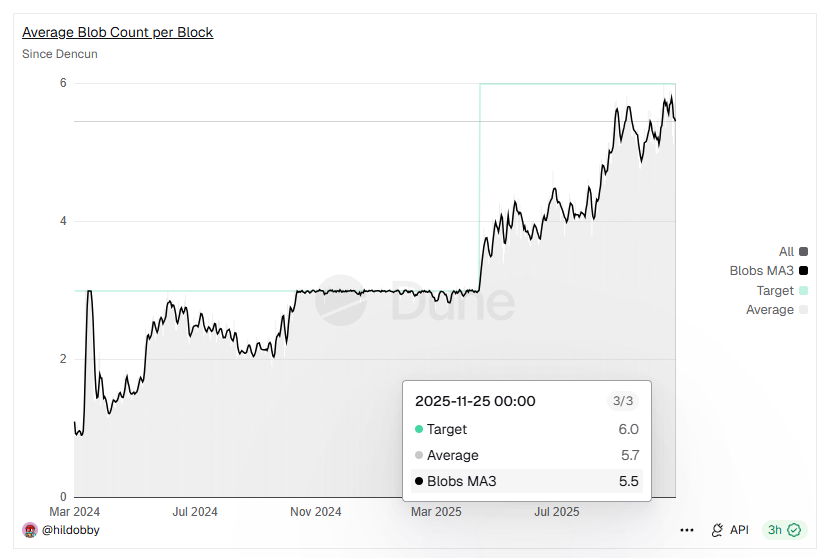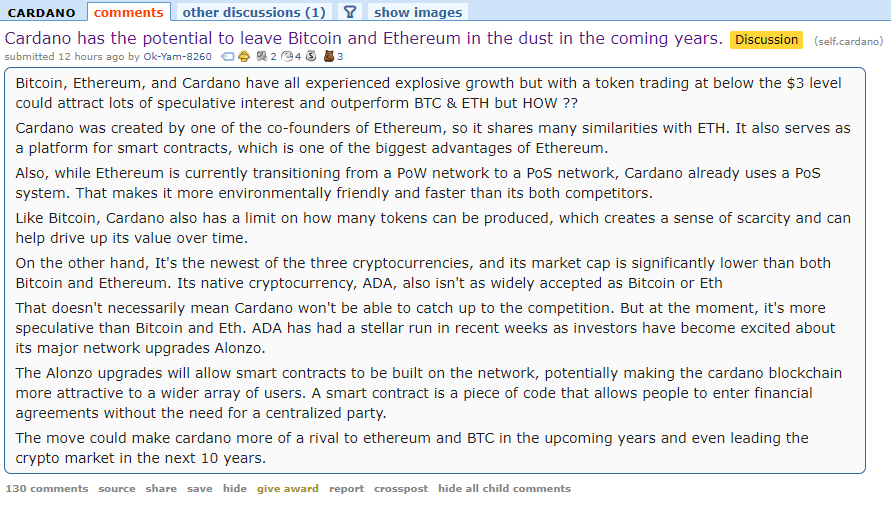The current blob target on Ethereum is 6 blobs per block and the network is almost at capacity.
Fusaka, which goes live on December 3rd, will enable much greater scalability of blobs with PeerDAS.
Though blob increases are being rolled out gradually as not to overload the network with the first 'Blob Parameter Only (BPO)' fork going live on December 9th (blob target increase from 6 to 10) and the second one going live on January 7th (blob target increase from 10 to 14).
Ethereum is scaling at both layer 1 and layer 2 with more BPO forks expected in 2026 and a 3x'ing of the L1 gas limit (from 60 million to 180 million).
Fusaka, which goes live on December 3rd, will enable much greater scalability of blobs with PeerDAS.
Though blob increases are being rolled out gradually as not to overload the network with the first 'Blob Parameter Only (BPO)' fork going live on December 9th (blob target increase from 6 to 10) and the second one going live on January 7th (blob target increase from 10 to 14).
Ethereum is scaling at both layer 1 and layer 2 with more BPO forks expected in 2026 and a 3x'ing of the L1 gas limit (from 60 million to 180 million).

Dashboard source: dune.com/hildobby/blobs
• • •
Missing some Tweet in this thread? You can try to
force a refresh









